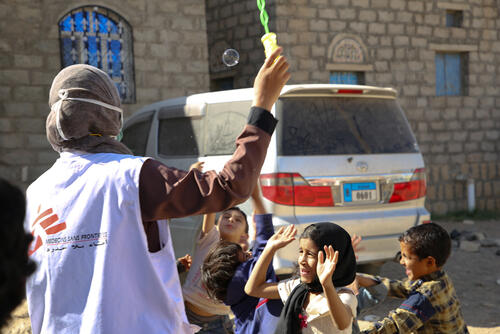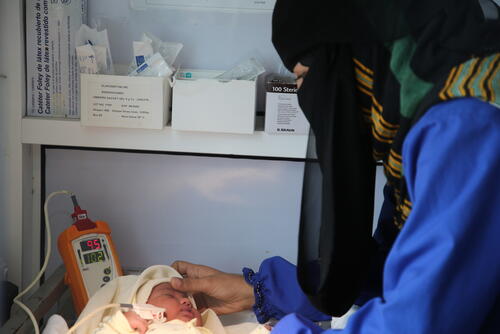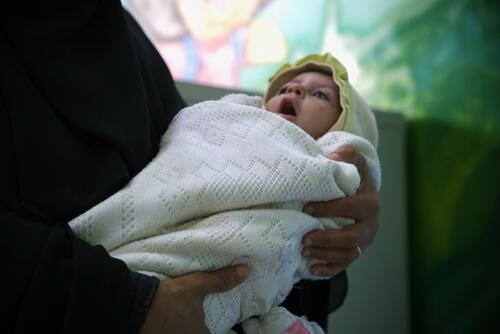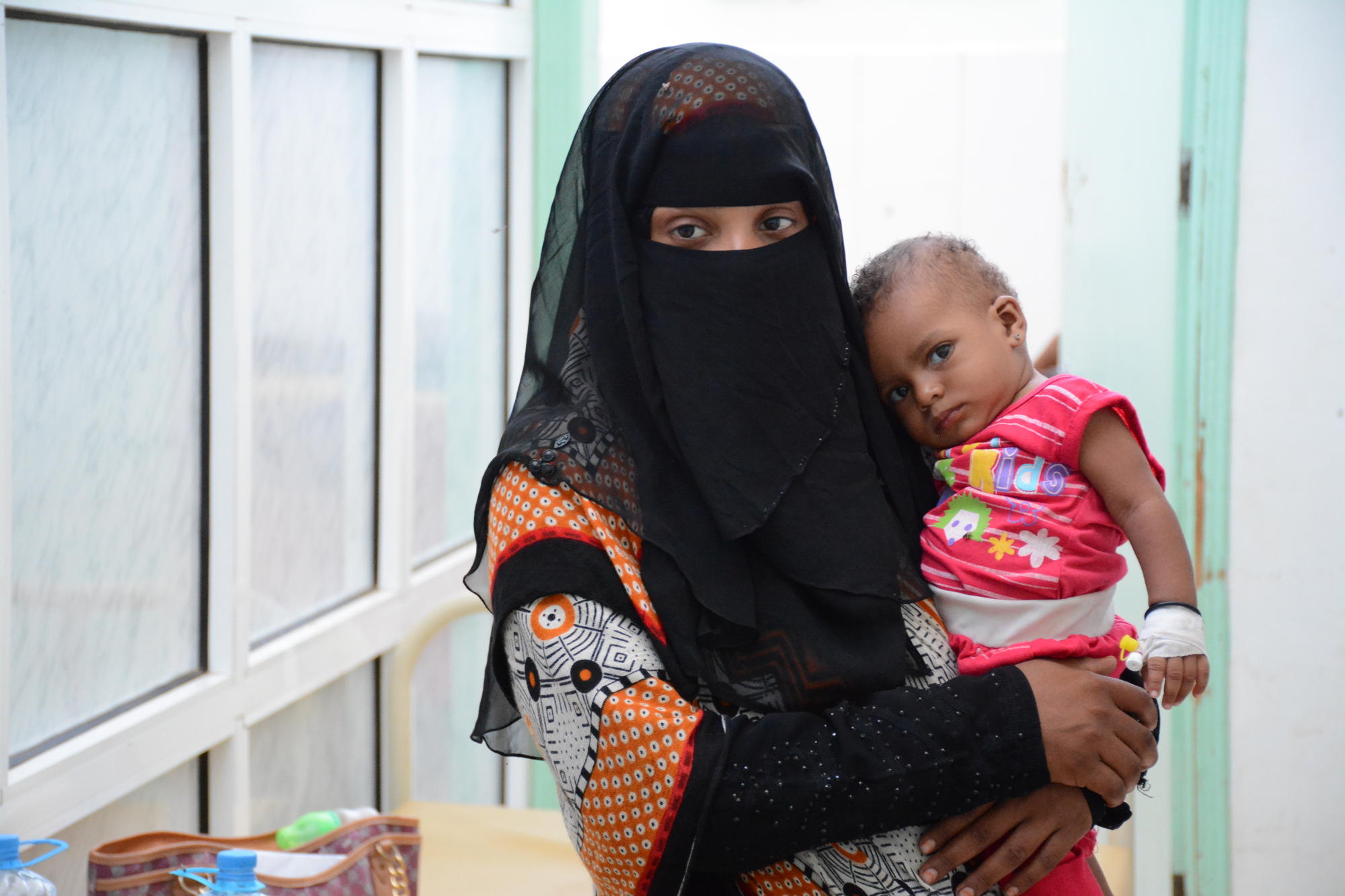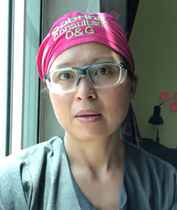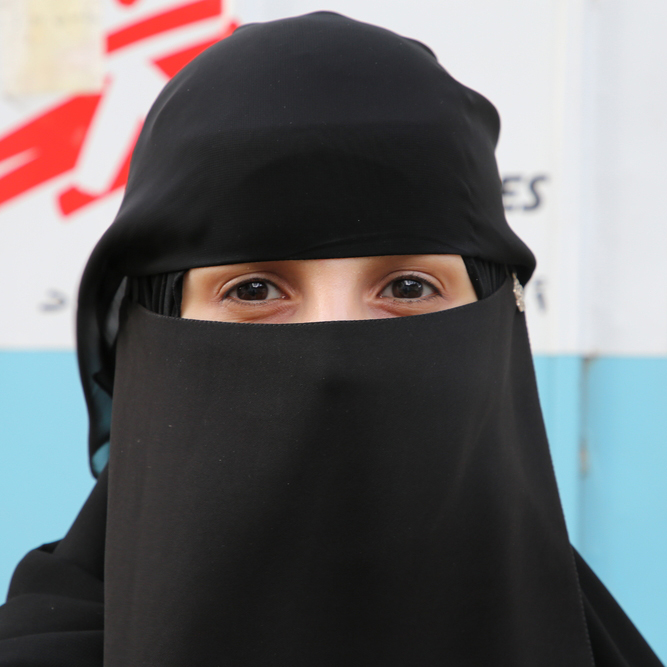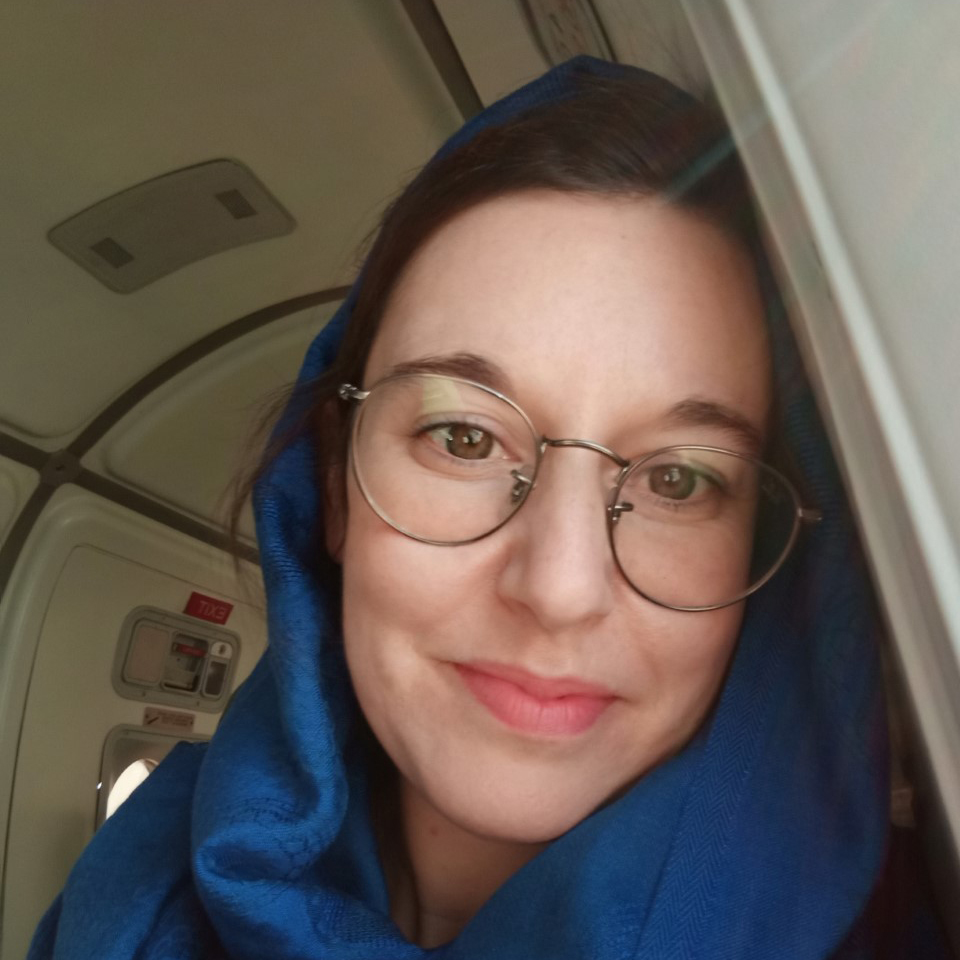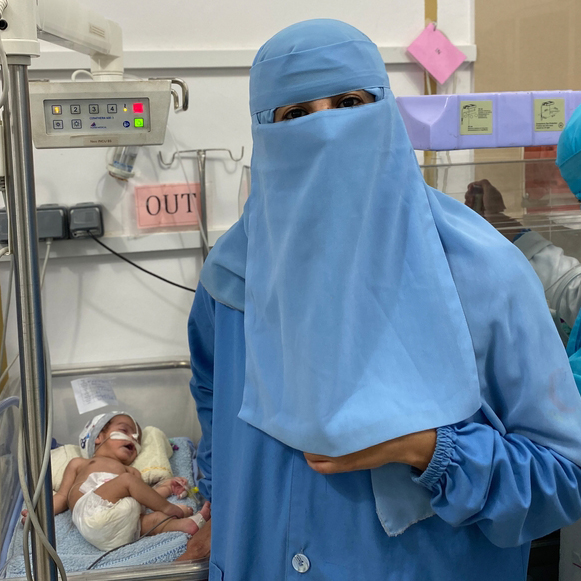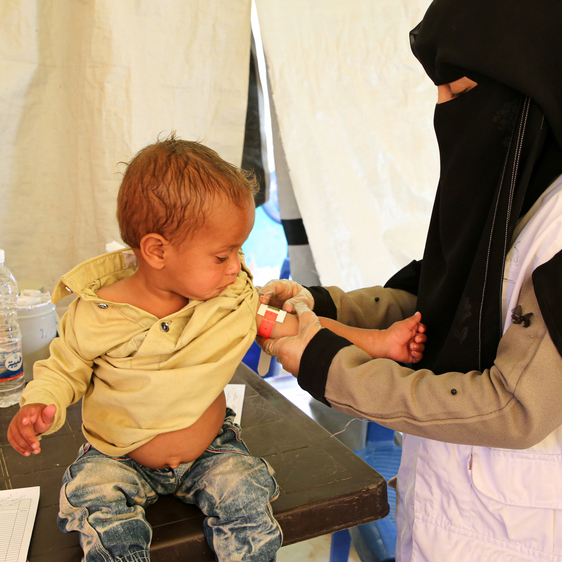The increasingly brutal conflict in Yemen is leading more women to die from childbirth complications and a devastating number of children aren’t making it to their first birthday. Healthcare is severely limited across the country.
Médecins Sans Frontières/Doctors Without Borders (MSF) provides life-saving medical care in hospitals across Yemen.
Donation impact calculator
Find out how your donation could bring hope and help save lives
"My name is Sabrina, I arrived in Taiz Houban Mother and Child Hospital in early April this year to begin work as an obstetrician. I am told that the frontline is only about 10km away.
As a mother of two myself, I understand the physical pain and emotional anguish of being a parent.
But the pain of motherhood in Yemen is on a different scale.
Our teams are working in 12 hospitals and health centres, and support more than 20 hospitals and health facilities across the country. We provide free medical care to people who would otherwise go without.
As well as our essential medical support for mothers and children, we run emergency rooms and outpatient departments, perform surgeries and carry out mobile clinics in rural towns and villages.
The situation is desperate. We need your help now more than ever."
Sabrina Das, MSF obstetrician, Taiz, Yemen
Dr Hana, MSF GP and paediatrician, Taiz
"One day, we received a patient suffering from pre-eclampsia and hypertension. She arrived with acute complications, primarily due to the far distance the patient had travelled. She travelled on a bumpy mountainous road for three hours. They had heard about MSF’s hospital and they were happy to have reached it in the end. Thankfully, the patient’s condition improved.”
Dr Silvia Marchesi, MSF anaesthetist, Aden
“The youngest child we saw was 18 months old. She arrived after a car accident with her right leg half amputated. The surgeon had no choice but to remove it. She was very brave, and her mother was amazing. She was always with her child, breastfeeding to calm her. I became very concerned about the child’s nutrition. All we had was powdered milk and a peanut-based therapeutic food, so that became the basis of the feeding programme we invented. She was taken to the operating theatre every day and sedated while the wound was dressed. Eventually, I was able to transfer her from the intensive care unit to the normal ward.”
Aoloom Ali, neonatal nurse, Khamer
“It’s been 19 years since I started working as a nurse in Khamer hospital. MSF brought to us two high flow devices to be used in the neonatal unit. It was the first time I had heard about the device and I had no idea how to use it. When they explained to us what this device did and how it was going to help us to save babies’ lives, I rushed to sign up for the training. During my years of experience, I’ve seen babies who couldn’t be saved, and the look on parents’ faces is really painful. I’m a mother and I feel for them. It feels so good when you can save lives.”
Hafsa Al Mesbahi, MSF nurse, Marib
“Most families do not have sufficient information about the importance of vaccination, so they refuse to vaccinate their children because of the side effects such as fever. In the MSF clinic, we provide awareness-raising to patients about the importance of vaccines, and we also advise mothers who have vaccinated their children to share their experience with other mothers.”
Read more from people on the frontline of the crisis in Yemen
